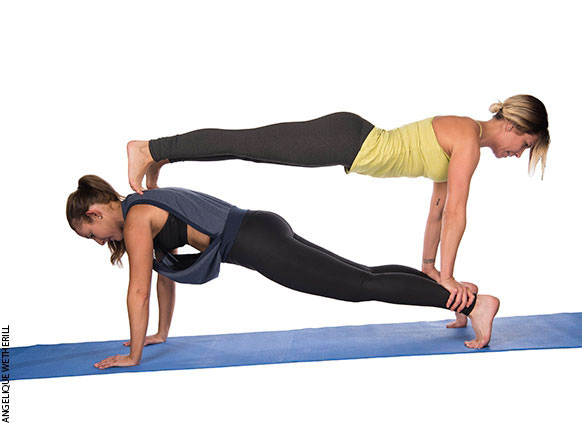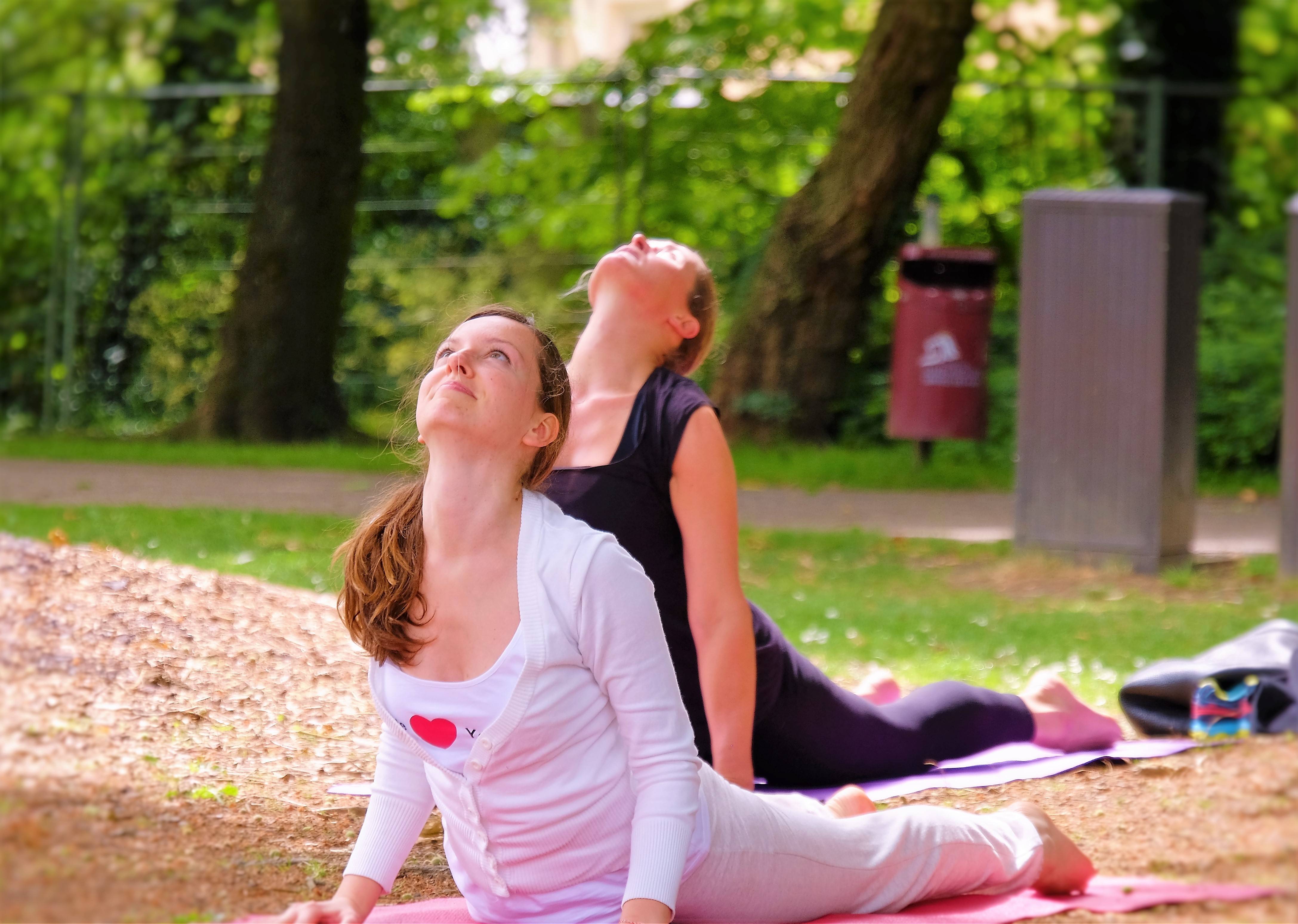
According to a 2006 study, Tai Chi regulars had a lower risk of falling. This could be due to the emphasis on fluid movement in tai Chi, while yoga is focused on poses. This exercise is good for healthy adults as well as those who have chronic conditions like diabetes or heart disease. Classes can be taken at community centers, gyms, or specialized studios. Many schools of tai chi have a therapist and offer personalized fitness programs.
Researchers have examined the effects of Tai Chi for people with high bloodpressure. In combination with lowered sodium intake and weight loss, Tai chi may help lower blood pressure. It may increase cholesterol and other lipids. Tai chi has been shown to lower the risk of developing heart diseases, according to several studies. These results are preliminary. A more thorough study is necessary to confirm the ancient exercise's benefits.

Research suggests that taichi may have a positive effect on people with a variety health conditions. Deep breathing can improve mental health. According to Stanford Medicine, deep breaths can help with anxiety and stress. The exercises improve brain focus and help reduce the risk of heart attack or stroke. Tai chi is a great option for people suffering from a variety of conditions.
Tai chi has been linked to mental health for its practitioners for many years. Although there isn't much evidence supporting this connection, it seems like Tai chi has a strong association with mental health. In 2010, a meta-analysis of 40 research studies came up with no conclusive conclusion. However, recent research in Tai chi and cognition shows promising results. The systematic review and meta-analysis in 2014 involved 2,553 adults who practiced tai chi and had cognitive impairments. It found that taichi exercises are beneficial for both mental as well as physical health.
Another study concluded that tai Chi improved the functioning and function of the prefrontal cortex. This part of brain is responsible in higher level thinking. Participants in the tai chi study reported a reduction in symptoms and improved moods and concentration. Tai chi is associated with a lower likelihood of a fracture of the hip.

The benefits of tai chi may include lower blood pressure, increased energy, and improved digestion. It can even reduce pain. In addition, the meditative aspects of tai chi are believed to improve general health. Tai chi's success could be tied to its mind-body connection, which can be achieved through meditation practice and taichi.
FAQ
What does the milk do for men
Next time you buy milk think about what you could do with it. You may also benefit from consuming less coffee.
Both children and adults have been shown to benefit from milk. Milk provides children with nutrients such as vitamin D, calcium, potassium, phosphorous, and magnesium.
It helps with digestion, promotes weight growth, and improves bone strength. Milk products can help adults have better immunity systems and less illness.
Milk is also rich in lactose, so people who cannot digest this sugar easily can enjoy its benefits without experiencing stomach problems.
Drink more milk than soda and juice. The extra calcium and vitamin D found in milk can help strengthen your teeth and bones.
Plain low-fat yogurt is another option if milk tastes bland to you. Yogurt is a great alternative to milk since it is lower in calories and higher in protein.
Yogurt also includes probiotics. These help in digestion and improve immunity.
Take a glass warm milk before you go to bed if you are having trouble sleeping. Warm milk helps relax muscles and boosts serotonin levels.
What is a good daily gym routine?
Regular exercise is key for staying in shape. You don't have to do the same type of exercise every day, it doesn't really matter. The key thing is consistency. It is important to stay consistent in order to get results.
Start by doing small amounts of daily physical activity (like walking). Then gradually increase the time spent exercising until you spend 30 minutes a day working out. This could include running, cycling, swimming, weight training, yoga, or aerobics classes.
It's important that you get your exercise done every day. Don't skip any sessions unless you have a valid reason for not attending.
When exercising outside, make sure you have the right clothing and shoes. You also need to consider the weather conditions and whether they affect your ability to exercise safely.
Make sure that you drink plenty of water while you're exercising. Avoid drinking alcohol during this time because it can cause dehydration. Avoid caffeine-rich drinks like coffee, tea, and coca. They will not only give you more energy but also dehydrate you.
When you first start exercising, you might feel tired after completing your workouts. But if your workouts are continued, you will feel more energetic.
Do I need to exercise every day?
No! At least 30 minutes moderate-intensity exercise five days per week is a good goal. This could be walking fast enough so you feel slightly out breath or cycling hard enough to sweat.
How many times per week do I need to exercise?
It all depends on your time and the type of exercise that you enjoy. A general guideline would be moderate-intensity aerobic exercise 3 - 5 days a week. You shouldn't do too much. To get the best results from your exercise, it is important to be consistent.
Which exercises are best suited for me?
It really depends on the type of fitness goal you have. Some people prefer endurance sports like swimming, cycling, or running. Others love lifting weights or using resistance bars. There are many exercise programs on the market today. Choose an option that suits your lifestyle.
Do Men Need A Gym Membership?
A gym membership is not necessary for men. You will get more value for your money if you join the gym.
Most gyms offer free trial memberships, allowing you to try out the facilities before paying any fees.
You can use the gym whenever you like, and it won't cost anything. You can cancel your membership as soon as you decide whether you love or hate it.
Statistics
- Are You One of the 20% of Guys (mh.co.za)
- The PRS enabled risk stratification for overall prostate cancer and lethal disease with a four-fold difference between men in the highest and lowest quartiles (HR, 4.32; 95% confidence interval [CI], 3.16-5.89). (pubmed.ncbi.nlm.nih.gov)
- Get free shipping and 25% off today. (healthline.com)
- 10 pounds in a month is likely during a lean bulking phase, especially for beginners. (muscleandstrength.com)
- Candidates and applicants must pass all four tests at 70% (minimum level) to graduate from Basic Deputy U.S. Marshal (BDUSM) Training. (usmarshals.gov)
External Links
How To
How do I lose fat by exercising?
Exercise reduces calories by increasing metabolism, and oxygen consumption.
If you exercise with moderate intensity, you can safely lose weight.
These tips can help you to burn fat while training:
-
Cardio exercises like walking, running (or jogging), swimming, cycling, running, and/or elliptical training are all good options.
-
Exercise for 30 minutes three times per week.
-
Strength training is a great way to lose weight.
-
Avoid intense exercise. You can build muscle without having to lose muscle tissue.
-
Hydrate well during exercise. Water flushes out toxins and helps keep the body hydrated.
-
After working out, make sure to drink low-fat proteins shakes. Protein shakes help repair muscles and boosts energy.
-
So you don’t feel hungry, eat smaller meals throughout your day.
-
Don't skip breakfast! You can feel tired and slow if you skip breakfast.
-
Take care to your mental well-being. Stressful situations may slow down your metabolism.
-
Keep a positive attitude. Research shows that overweight people gain more weight if they believe they are overweight than those who believe they look good.
-
Get enough sleep. Insufficient sleep can make it more difficult to lose weight.
-
Stay active. Get up every hour and get moving.
-
Maintain a healthy diet. Healthy eating will keep you fuller and more satisfied for longer.
-
Find ways to relax. Relaxing doesn't mean your body releases stress hormones which cause muscle tissue to be destroyed.
A balanced diet includes all essential nutrients needed for growth and development.
Eat six small meals each day instead of three large ones. This gives your body more time to digest the food you eat.
Calcium is required to support strong bones. Calcium can be found as a dairy product such as milk, yogurt and fortified soy drinks, orange juices, cereals, breads, and cereals.
Calcium is found in leafy vegetables, beans and tofu, as well nuts, seeds and cheese.
Vitamin D is required for calcium absorption. Vitamin D can be found in egg yolk, fatty fish, and other fortified foods.
Vitamin E is essential for skin health. It's found in vegetable oils, wheat germ oil, peanuts, almonds, sunflower seeds, and corn.
Zinc is essential for healthy immunity and wound healing. Zinc can also be found in legumes, oysters, meats and whole grains.
Zinc deficiencies can lead to fatigue, decreased appetite, depression, and reduced immunity.
Insulin resistance is caused by eating too much sugar, which can increase blood glucose levels. Insulin resistance can lead to weight gain.
Insulin resistance develops when there are high levels of free radicals in the bloodstream. Free radicals are molecules that have unpaired electrons, which can cause damage to cell membranes or other parts of your body.
Free radicals come mainly from food additives, pesticides, herbicides, preservatives, smoking, air pollution, radiation, chemicals in cosmetics, lotions, and household cleaning supplies.
Free radical damage can lead cancer, heart disease or diabetes, arthritis, asthma, or other forms of aging.
Antioxidants are essential for preventing free radical damage. Antioxidants protect against oxidative damage.
Vitamin C is found in citrus fruits and beta carotene is found in carrots.
Selenium, copper as well as manganese and zinc are some other antioxidant nutrients.
Selenium is known to protect cells from the oxidative damage that free radicals can cause. Selenium may be found in Brazil nuts as well tuna, liver and kidneys. It can also be found on shrimp, cod, turkey, beef lamb, pork, chicken, and other foods.
Copper protects your eyes, brain, eyes and red blood cell. Copper can be found in meat, shellfish, meat, and organ meats.
Manganese is essential for bone structure. Manganese is found in brown rice, spinach, bananas, prunes, raisins, oatmeal, and lentils.
Zinc helps with normal growth, reproduction, as well as wound healing. Zn is found in lean meats, poultry, white fish and eggs.